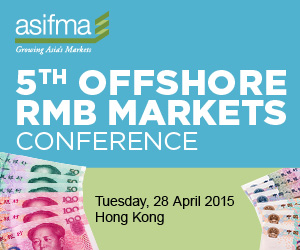China
China Stock Exchange Equities
Instruments
Equities: Shares, ordinary shares, preference shares, participating preference shares, cumulative preference shares, redeemable preference shares, convertible preference shares, founders’ shares or management shares, property trust units, transferable subscription rights/warrants.
Debt: Bonds (straight, fixed and non-convertible), promissory notes, Malaysian government securities, debentures, loan stock, subordinated loan notes.
Money Market: Treasury bills, bankers acceptances, negotiable CDs, trade bills, government-issued investment certificates, floating rate negotiable CDs, revolving underwriting facility, notes issuance facility.
Other: Real Estate Investment Trust (REIT) and Exchange Traded Funds (ETF)
Equities: Shares quoted on the Bursa Securities are traded in quantums of 100 units, per board lot.
Odd lots are traded on the "odd lot" board or transacted by private negotiation through a direct business transaction.
Debt: No set board lots, however trades are usually contracted in multiples of MYR 5 million. Debt instruments listed on the Bursa Securities are traded in standard board lots of 100 units each.
Dividend Payment Frequency:
A Share: Semi-annual or annual. Declared and paid in RMB
B Share: Semi-annual or annual. Declared and paid in USD
Interest Payment Frequency:
Annual or semi-annual
Interest Accrual Rate: Not applicable
Corporate Actions
Common Events: Cash dividends, bonus issues and rights issues
Rights Tradeable: A Shares - No,
B Shares - Yes
New Shares from Exercised Rights: The payment date of new shares from exercised rights will be announced separately by the company, this is normally two days after the subscription payment deadline..
Foreign Investor Restrictions
Foreign investors are entitled to exercise voting rights on A and B shares.
Shares Blocked
The trading of the stock is suspended from the date of the meeting to the date of the meeting results announcement and will resume trading one hour after the beginning of trading on the announcement date. Share blocking is not relevant in mainland China’s securities market.
Meeting Notices/
Agendas
Disclosure of shareholder information is limited and is only announced through the appointed newspapers - the Shanghai Securities News, Securities Time and China Securities Journal - in Chinese. Annual general meetings (AGMs) and extraordinary general meetings are announced 30 days in advance.
Meeting Outcome
Announced through the official appointed newspapers - the Shanghai Securities News, Securities Time and China Securities Journal
Company Reports:
On request, subject to availability
Power of Attorney:
Required
Other
Shareholders of "A" and "B" shares have equal voting rights. Individual shareholders and custodians can consolidate share positions and vote by proxy.
Foreign Ownership
Market Entrance Requirements
A-share Market
QFII applicants must submit applications to both the CSRC and SAFE through the subcustodian. The CSRC will determine whether or not to grant approval within 15 working days from the date of submission of the complete documentation. A securities investment license will be issued to those applicants whose applications have been approved. Applicants will apply to SAFE through their subcustodians for investment quotas after obtaining the securities investment license. SAFE will determine whether or not to grant approval within 15 working days from the date of submission of complete documentation and will notify the applicants in writing of their permitted investment quota and issue a foreign exchange registration certificate to the successful applicants. The securities investment license issued by the CSRC will automatically become void if an applicant is unable to obtain the foreign exchange registration certificate within one year after the license is granted. Normally it will take CSRC and SAFE more time to grant the license depending on the market situation.
Upon receipt of the approval from the CSRC and SAFE, the subcustodian will submit an account opening application to CSDCC Shanghai Branch. The account-opening fee charged by CSDCC Shanghai Branch is RMB400.
A QFII applicant should fall within the following criteria:
* The applicant should have sound financial and credit status, should meet the requirements set by the CSRC for asset size and other factors, and should have risk control indicators that meet the requirements set by laws and securities authorities under its home jurisdiction.
* Employees of the applicant should meet the requirements for professional qualifications set by its home country/region.
* The applicant should have a sound management structure and internal control system, should conduct business in accordance with the relevant regulations, and should not have received any substantial penalties by regulators in its home country/region during the three years prior to application.
* The applicant’s home country/region should have a sound legal and regulatory system, and its securities regulator should have signed a memorandum of understanding with the CSRC and should have maintained an efficient regulatory and co-operative relationship with the CSRC.
The criteria of asset scale and other factors referred to in item number one above are described below:
Fund management institutions must:
* be established for at least five years, and
* have greater than USD 10 billion in securities assets under management in the last fiscal year.
Insurance companies must:
* be established for at least 30 years,
* have paid-up capital of at least USD 1 billion, and
* have greater than USD 10 billion in securities assets under management in the last fiscal year.
Securities companies must:
* be established for at least 30 years,
* have paid-up capital of at least USD 1 billion, and
* have greater than USD 10 billion in securities assets under management in the last fiscal year.
Commercial banks must:
* be one of the world’s top 100 banks by capitalisation, and
* have greater than USD 10 billion in securities assets under management in the last fiscal year.
If the group entities are not qualified to apply for QFII, only one of them can apply using the parent/holding company’s capital/assets. However, the regulators have not confirmed whether the parent/holding company, as well as its group entities that can meet with the QFII qualification requirement, can both apply for QFII status.
B-share Market
A foreign institutional investor must obtain an unique investor code from the CSDCC Shanghai Branch before investing in the Shanghai stock market. The CSDCC Shanghai Branch requires foreign investors to provide identifying documentation for obtaining the investor code prior to entering the market. Additionally, a local subcustodian opening accounts on behalf of a foreign investor, must show documentation to prove that it has received a mandate to open an account from an authorised individual within the institution seeking access to the market. Furthermore, some documentation requirements differ for incorporated versus non-incorporated investors.
The code which identifies the name, address, country of domicile, and tax identification number (or equivalent reference number from the country of domicile) of the beneficial owner can be secured through one of the CSDCC Shanghai Branch’s clearing participants, normally the subcustodian. An institutional investor must supply the unique shareholder code and name to the broker whenever placing securities transaction orders.
CSDCC Shanghai Branch charges an account-opening fee of USD 75 for institutional investors and USD 15 for individual investors.
Investment
Restrictions
Foreign investment is permitted in the B share market. Foreign institutional investors who have been granted QFII status are able to invest in the A share and bond markets. Without a QFII licence, foreign investment is only permitted in the B share market. Same-day turnaround transactions are prohibited.
Foreign Ownership Limits
* Each individual QFII cannot hold more than 10% of the total shares of any listed company
* All QFII investors on an aggregate basis cannot hold more than 20% of the total shares of any listed company
Repatriation Policy
A share
The local currency, Renminbi, is not freely convertible under the capital account. Each transaction under the capital account would require SAFE approval. When the QFII wishes to convert RMB to foreign currency and remit the principle/profits out, the following approval is required.
Principal repatriation: For a QFII that is a closed-end fund management institution, three years after remitting the principal, they may apply for the purchase of foreign exchange for the repatriation of principal in instalments. Each remittance must not exceed 20% of the total principal, and consecutive remittances shall be conducted at intervals of no less than one month.
For other QFIIs, one year after remitting the principal, they may apply for the purchase of foreign exchange for the repatriation of principal in instalments. Each remittance shall not exceed 20% of the total principal, and consecutive remittances shall be conducted at intervals of no less than three months.
Profit repatriation: In the event that a QFII wishes to repatriate accumulated and realised profit out of China after the annual audit by the QFII’s designated local CPA and tax clearance, they must instruct the custodian to apply to SAFE 15 days in advance, together with the required documents. However, QFIIs repatriation of profit is currently delayed as the tax policy for QFII investment is still under discussion.
B share:
Income on B shares is paid in USD and can be repatriated freely.
Securities Lending is permitted in the market - trading orders can be limit price orders or market price orders.
Dividend Tax Rate
A share
Not yet announced as the tax obligation of QFIIs is under discussion among local authorities and the Tax Bureau.
B share:
Tax exempt.
Interest Tax Rate
A share
Not yet announced as the tax obligation of QFIIs is under discussion among local authorities and the Tax Bureau.
B share:
Tax exempt.
Capital Gains Tax Rate
A share
Not yet announced as the tax obligation of QFIIs is under discussion among local authorities and the Tax Bureau.
B share:
Tax exempt.
Tax Treaties
| Albania | Indonesia | Poland |
| Armenia | Iran | Philippines |
| Australia | Ireland | Portugal |
| Austria | Italy | Romania |
| Azerbaijan | Jamaica | Russia |
| Bahrain | Japan | Seychelles |
| Bangladesh | Kazakhstan | Singapore |
| Barbados | Korea, South | Slovenia |
| Belarus | Kuwait | Spain |
| Belgium | Kyrgystan | South Africa |
| Brazil | Laos | Sri lanka |
| Bulgaria | Latvia | Sudan |
| Canada | Lithuania | Sweden |
| Croatia | Luxembourg | Switzerland |
| Cuba | Macau | Thailand |
| Cyprus | Macedonia | Tunis |
| Czechoslovakia | Malaysia | Turkey |
| Denmark | Malta | Venezuela |
| Estonia | Mauritius | Ukraine |
| Egypt | Mexico | United Arab |
| Finland | Moldova | United Kingdom |
| France | Mongolia | United States |
| Georgia | Netherlands | Uzbekistan |
| Germnay | New Zealand | Vietnam |
| Hungary | Normay | Yugoslavia |
| HKSAR | Oman | |
| Iceland | Papau New Guinea | |
| India | Pakistan |
Stamp Duty
0.3% of gross consideration is payable by both the buyer and seller for A shares and B shares. Funds and bonds are exempted from stamp duty.
Other Taxes:
None




